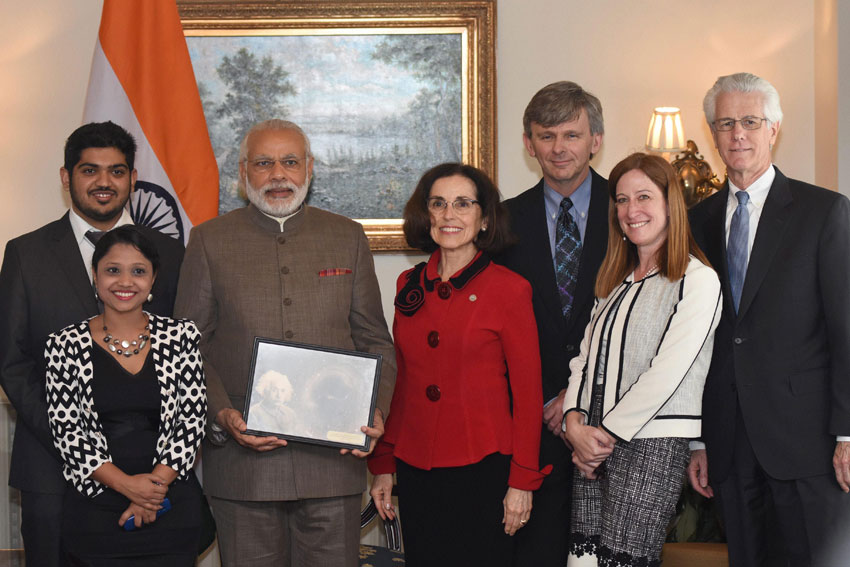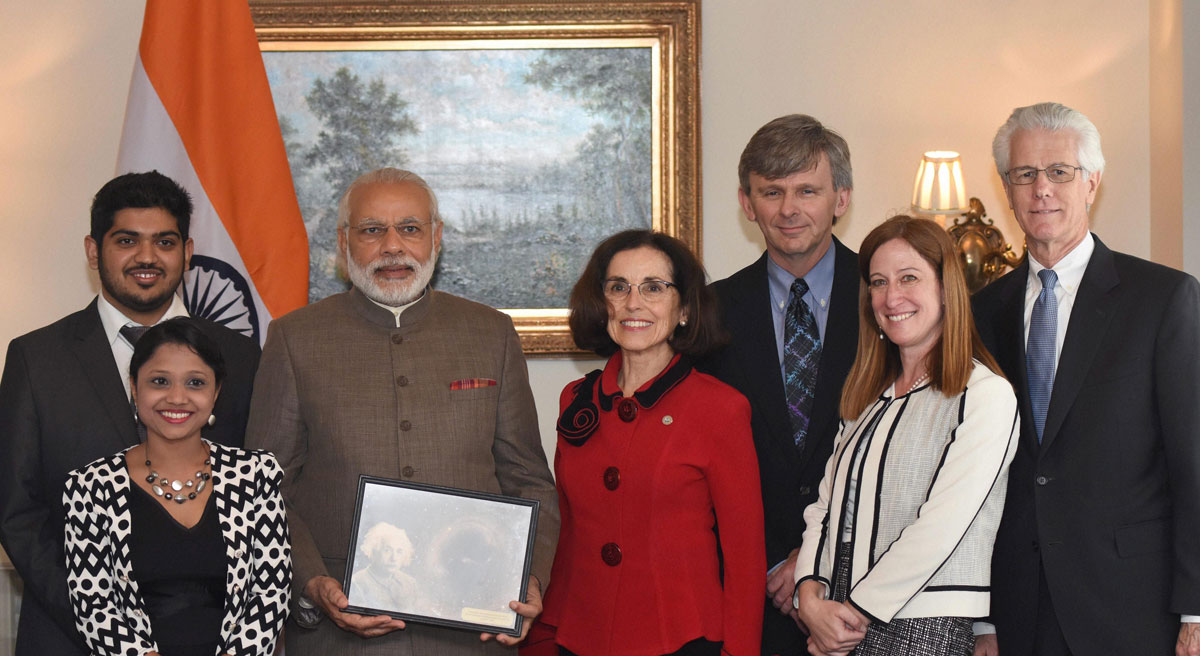NEW LIGO OBSERVATORY IN INDIA

India and the U.S. signed a MoU, Mar. 31, for setting up a new Laser Interferometer Gravitational-Wave Observatory (LIGO) in India that will play significant role in carrying forward frontline research on various aspects of gravitational wave astronomy, writes Lalit K. Jha. (#Siliconeer, @Siliconeer, #LIGO, #narendramodi, @narendramodi)
The MoU comes about a month after the Indian Cabinet approved the construction of the long-awaited third LIGO interferometer.
Department of Atomic Energy Secretary Sekhar Basu and the U.S.-based National Science Foundation’s France Cordova signed the MoU in this regard in the presence of Indian Prime Minister Narendra Modi.
Modi, who is currently in the U.S. to attend the two-day Nuclear Security Summit, met scientists of LIGO who recently proved gravitational waves theory. He also interacted with the Indian scientists who are part of the LIGO project.
Modi described the LIGO project as a great example of India-U.S. scientific collaboration and said the success of this project could well inspire an entire young generation of Indian scientists.
He urged the Indian scientists who are part of the LIGO project to interact with Indian students and visit Indian universities, as much as possible.
The Cabinet, he said, has already approved $1,200 crores for the project.
“Now that India has decided to be part of the project, the possibility is that India would be central to the LIGO project, partly on account of the fact that geography favors us,” External Ministry Spokesman Vikas Swarup told reporters.
“It would come up hopefully in the next five to seven years,” Swarup said.
Cordova explained how India was extremely important for the future of the LIGO project.
“Today is an exciting day because it offers the promise of deepening our understanding and opening an even wider window to our universe. This MOU is the first step toward an additional gravitational wave detector, located in India,” Cordova said.
“With this new commitment to collaboration, NSF’s Laser Interferometer Gravitational-Wave Observatory (better known as LIGO), and its hundreds of associated scientists worldwide, are positioned to take this nascent field of gravitational wave science to the next level,” she said.
“Once in place, a third detector would be able to ‘triangulate’ the source of gravitational waves and thus make other, more detailed observations,” she added.
“We look forward to working closely with our Indian colleagues in this endeavor to further our knowledge of the most energetic phenomena in the cosmos,” Cordova said.
The construction of the long-awaited third LIGO interferometer, expected to be functional by 2023, will significantly improve the ability of scientists to pinpoint the sources of gravitational waves and analyze the signals.
Boston-based Nancy Aggarwal, one of the two Indian students involved with the project who met Modi in Washington, D.C., said the Prime Minister was very curious to hear about the project and how it can be further helpful in boosting science and science education in the country.
“He said, he would like Indian scientists at LIGO to go back to India and popularize the science to India, so that we can get more people motivated,” said Aggarwal, a Ph.D. student at the prestigious Massachusetts Institute of Technology in Boston.
Modi during the interaction said it would be great for India and the U.S. to work together which would help create a brand new breed of Indian technicians, she said.
The prospect of LIGO India has opened up new prospect of opportunities in India, she added.
Another Indian Ph.D. student from Georgia Institute of Technology Karan P. Jani impressed Prime Minister with his answer.
Modi asked him why Albert Einstein was so confident about his discovery where there were no such modern scientific tools and equipment available.
Jani answered that this was because Einstein was curios, self-confident and had a base in mathematics.
The Prime Minister, according to Swarup said that this was a very Gujarati type answer.
“My job in LIGO is look for black hole collisions,”Jani said, adding that he would go back to India and be part of LIGO India project.


